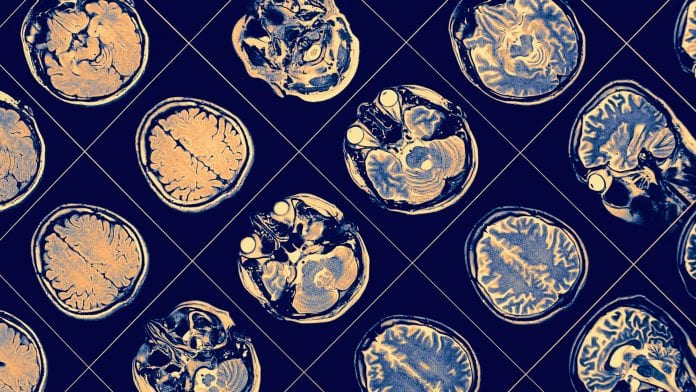
Researchers have recently discovered that people who carry a gene associated with a higher risk of Alzheimer’s disease find it more difficult accessing recently acquired knowledge despite having no memory problems.
The findings, published in a joint Baycrest-University of Oxford study and published in Scientific Reports, show that older adults carrying a specific strain of the gene, apolipoprotein E4, otherwise known as APOE4, were unable to tap into information they had just learned to assist them on a listening test.
The study states: ‘Attention and memory may be impaired in individuals at-risk for Alzheimer’s disease (AD), though standard cognitive assessments typically study the two in parallel. In reality, attention and memory interact to facilitate information processing, and thus a more integrative approach is required. Here, we used a novel auditory paradigm to assess how long-term memory for auditory scenes facilitates detection of an auditory target in asymptomatic carriers of Apolipoprotein E4 (APOE4), the principle risk gene for late-onset AD.’
The study will allow researchers to continue exploring how the brain’s ability to process what is heard changes with neurodegenerative conditions, such as mild cognitive impairment and could help to develop new methods for detecting risk of Alzheimer’s in people at an earlier stage.
A specific gene increases risk of Alzheimer’s
A total of 60 patients from the Oxford Biobank aged between 40 and 61 and who had varying combinations of APOE genes – including one group of individuals with a combination of APOE3/APOE4 genes, one group of individuals with a set of APOE4 genes and one group of individuals with a set of APOE3 genes – took part in the study.
The study consisted of the participants listening to 92 different audio clips and having to pay attention to where they were coming from, whether it was presented in the left, right or both ears. They were then played the clips again one hour later and were asked to press a button if they could hear an additional sound at the end of the clip.
The findings showed that no matter the APOE genotype, all older adults were able to learn the information and remember the location of the audio clip, but individuals with the APOE4 gene had greater difficulty in identifying the additional sound at the end of the clip.
Dr Claude Alain, a senior author on the paper and senior scientist at Baycrest’s Rotman Research Institute said: “For some reason, people with the APOE4 gene were not able to take advantage of information they learned earlier, such as the expected location of the clip, to boost their performance. This study shows we have a test that is sensitive to capture problems or challenges faced by individuals with this gene, before their deficits are observed on a standard neuropsychological assessment”.
Better methods of detecting risk
According to Dr Chris Butler, another senior author on the paper and associate professor in clinical neurosciences at the University of Oxford, the APOE4 gene increased risk of Alzheimer’s disease by 15-fold.
He said: “The research could lead to more sensitive methods of detecting Alzheimer’s disease in its very earliest stages, the time at which treatments are most likely to be effective.”
The majority of research conducted into this area has so far focussed on attention and memory separately, however, the researchers point out that real-world cognition involves constant interaction between the two. Attentional allocation is guided by prior experience – including episodic memory.
The research states: ‘Memory-guided attention, where selection of targets is aided by long-term memory (LTM) for relevant contexts, appears to recruit a hippocampal-parietal network that modulates top-down attention and interacts with the fronto-parietal attentional network involved in selective attention tasks. Since early AD [Alzheimer’s Disease] pathology targets both the hippocampus and superior and posterior parietal cortex, important hubs for memory and attention respectively, it is plausible that tasks that require an interaction of memory and attention will capture early AD-related deficits better than simple memory and attention tasks alone.’







